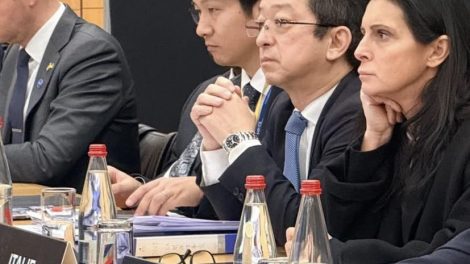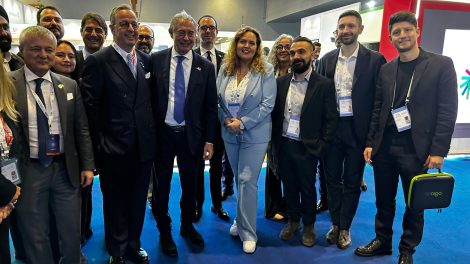The G7 Working Group on Cyber Security. For the first time, on the initiative of the Italian Presidency of the G7, the directors of the agencies and centres responsible for cybersecurity from the G7 member countries met on Thursday to discuss policy lines for countering and preventing the cyber threat.
- Bruno Frattasi, the director general of the Italian National Cybersecurity Agency, chaired the meeting in Rome, which focused on identifying the interdependence between cybersecurity and artificial intelligence (AI).
- “There is a close relationship between AI and cybersecurity,” Frattasi explained, due to the concern of maintaining control over the security of AI systems.
- The discussion took place almost the same time the US and China met to discuss how to outline common standards on AI, once again highlighting the global scale of the matter.
AI at the centre. The Italian G7 put AI at the centre of the discussion, aiming to create a standard level playing field to ensure control over the risks and opportunities.
- As Frattasi explained, “AI systems can be a threat to a country’s digital surface and a defensive weapon that can enable cyber threat analysis capabilities. As a national agency, we have already started using generative AI systems as weapons of predictive analysis”.
- Additionally, in the closing remarks at the meeting, he stated, “It is our responsibility to understand better and monitor the current and potential uses of AI systems” (including large language models) that “may be used for malicious purposes.”
Democracies and cyber resilience. The second part of the meeting focused on penetration and hacking activities that can disrupt and influence countries’ democratic processes. In particular, the G7 committed to this in view of the upcoming European elections on June 8 and 9.
- The aim is to take preventive measures to secure infrastructures and systems that could be vulnerable to attacks by malicious actors seeking to undermine the integrity of the elections. Implementing these preventive measures ensures a smooth and orderly electoral process. “The meeting addressed the risk of interference in the electoral process,” said Frattasi, adding that this issue was also analysed “from the perspective of disinformation used as a tool for manipulation and interference against Western democracies”.
- “The participants have committed to enhancing the sharing of information on major cyber threats affecting critical infrastructures, incidents, and countermeasures,” Frattasi added.
From democracy to infrastructure. Risks from external influences, such as cybersecurity and AI, also have a broader scope. The recently adopted at EU level NIS-2 Directive, which also covers submarine cables, underlines the importance of protecting critical infrastructure. As Frattasi explained, a cyber attack targeting a single supply chain link could cause widespread disruption.
- Frattasi said that protecting critical infrastructure from cybersecurity threats is a global challenge that requires a coordinated international response.
- Italy initiated the meeting of cyber authorities, which received broad support. G7 countries were willing to continue these efforts under the Canadian presidency next year.





